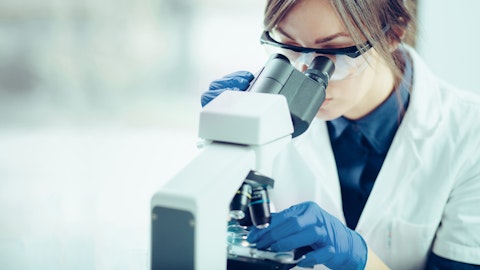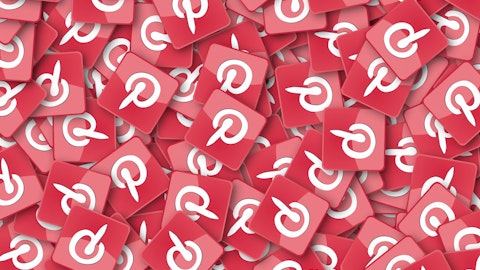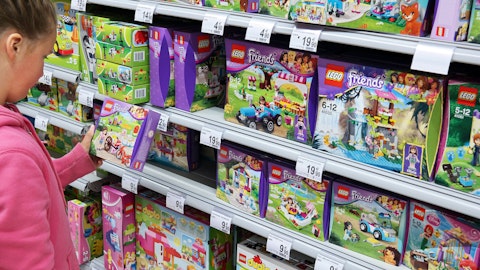Dennis Calvert: Yeah. What we’ve done there, great question. That’s a common potential roadblock, right, for people, for companies. In our case, we kind of skipped over all that. First of all, remember, we spent more than eight years making these products. We know how to make these products, and we know all the different techniques for how to coordinate and provide some assurance on quality control, get the volume. And so we made a decision early with the team at Ikigai that we needed to outsource with national co-packers. So we chose decent-sized companies with a bit of hunger that wanted to do something great and get it land an account like this, it could go really big someone that had worked with all the national brands. All historically, a number of big national brands, branded products that were is call it co-packing.
Co-packing means the modeling put a label on it, put it in a box, tape it, palletize it, ship it, that’s what they do, right? So that’s a co-packer plus a 3PL. So what we’ve done is we’ve contracted with groups that have the ability to do this on a very national — in regional and national scale and having the hunger and the desire to ramp up just as fast as we can ramp. So right now, we see no backlog or delay and be able to ramp up production. There’s a lot of logistics that go on, on things like plastics, right? So logistics, the meaning especially if you’re changing labels and changing bottle designs and all the things every wants to do to make it the cutting edge as best as possible. So that’s where the roadblocks happen, not roadblocks, the potential delay is to get ahead of that.
And so we’re disciplined, and we’re working very closely with that we got to do so. In addition, we — as you know is they’ve gone to a custom model. So that’s a great move. It’s beautiful. It’s a beautiful model. It’s high quality. It’s going to be more durable, everybody likes it, a great move, but it also means custom models. And so that has a whole supply chain there, channel. So the answer is large, established, experienced supply chain, Hungary , with the capability of expanding nationally and internationally. So that’s what we’ve done. So we’re not worried about the ability, but you do have to manage all the little components when it’s happening real time, it’s happening fast. And so that’s what we got.
Brian Loper: Great. So shifting gears here, couple of questions about Garratt-Callahan. So will they sell the AEC and AOS? Are they being schools in AEC, AOS operations and benefits of the use? And is there a delay in the partnership?
Dennis Calvert: Yes, good question. So of course, you know what happened, so — one of the challenges is an innovator like us, and I face it in my position daily, and that is how in the world can a small company like this do so much. And when you present yourself with eight technologies and multiple devices, it’s hard for people to get their head around all of it. And it’s natural to try and want to slot you into a spot as an odor company or as a PFAS company that’s normal. That’s normal. So here’s what happens. People have a reason to be attracted to us for some reason. So what could that be? That could be our investment opportunity. It could be solving big problems. It could be a unique thing like PFAS. It could be some of this triggered over water or wound care, whatever it is that brought them into the position of being aware of the company.





